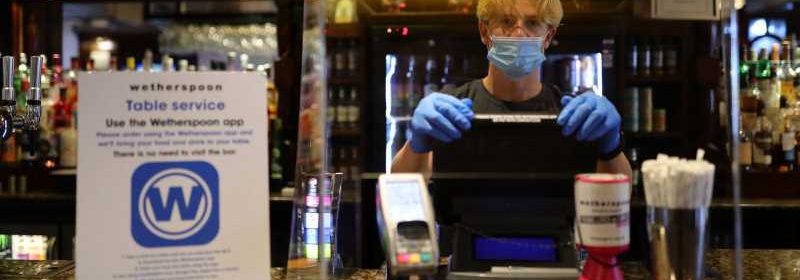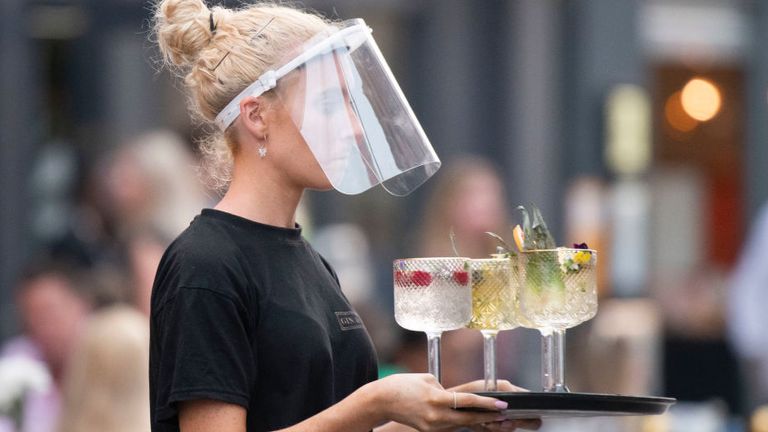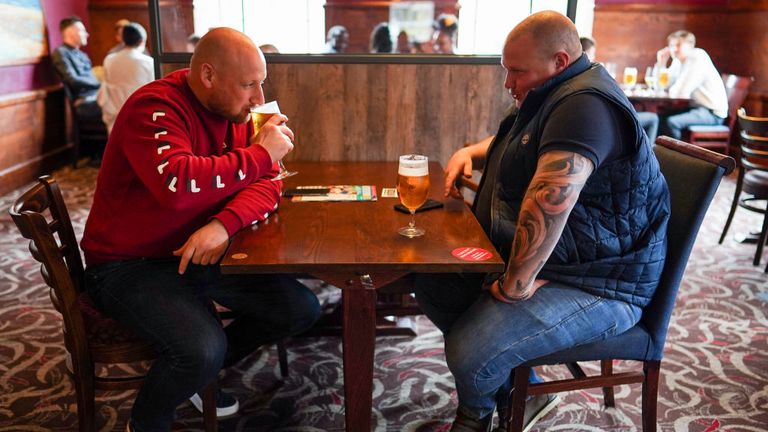COVID-19: 29,000 pubs will stay closed even if outdoor service allowed in April, says trade body

It has been estimated that 60% of pubs in the UK won’t be able to reopen even if looser coronavirus restrictions allow outdoor service from April.
The British Beer & Pub Association (BBPA) has said that even if the government does lift some of the rules around hospitality many pubs do not have a big enough garden or outdoor space to be able to open.
It believes this could affect 29,000 pubs.
The association is calling for pubs to be able to re-open fully, inside and outside, when non-essential retail is allowed to open.
The BBPA says that while around 75% of UK pubs have a beer garden or outdoor space, only 40% of pubs are likely to have a big enough space.
Therefore, it estimates that only 17% of pubs will open and said the limited capacity and unpredictable weather could also mean many businesses will struggle to break even.
“This would result in a loss of turnover to the sector of £1.5bn when compared to trading in normal times. That is far from reopening and recovering,” said Emma McClarkin, chief executive of the BBPA.
“Even if some pubs did try and open outdoors only in April, all it would take is some heavy rain and they would find it has all been for nothing.
“For many pubs, gardens are at the back and the only way to access them is through the inside. And of course, toilet facilities would still need to be provided.
“We question the government’s thinking behind this and suggest they consult with us as a sector on it.”
Elsewhere, a study in Scotland has concluded “potentially significant risks of COVID-19 transmission” were found in pubs and bars across the country last summer despite the efforts of owners and government guidance.
The University of Stirling research, published in the Journal Of Studies On Alcohol And Drugs, is said to be the first in the world to examine the measures tackling coronavirus in licensed premises.
Business owners and representatives were interviewed before reopening to understand the challenges they faced, with researchers then visiting 29 premises for up to two hours while posing as customers.
A range of incidents with potential to increase transmission risk were observed in all but three venues in the study.
Incidents included singing, shouting or playing music; mixing between groups; standing and moving around the bar without distancing; customers taking photographs with other people and staff; and shaking hands or embracing others who did not appear to be in the same household.
Source: Read Full Article


